Hundreds of seabirds being lost to avian flu in Shetland
- Published
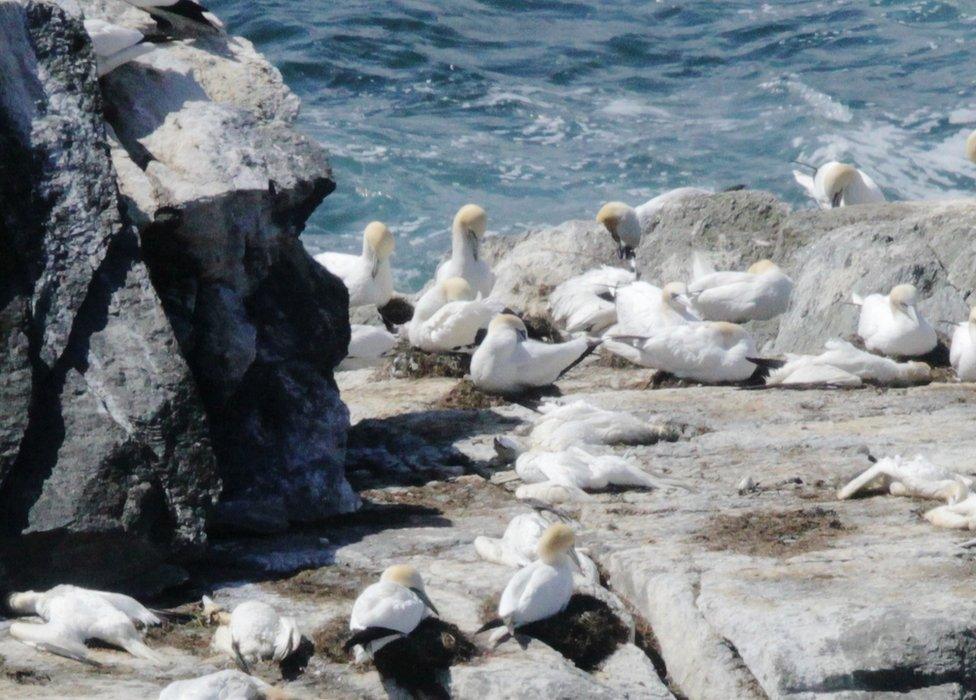
Hundreds of birds are dying in Shetland
Hundreds of seabirds in Shetland are dying as avian influenza spreads through breeding colonies.
About 1,000 dead gannets have so far been recorded, and hundreds of great skuas have also been found dead or dying.
Ornithologists are concerned about the spread among the wild bird population.
The worry is how many seabirds will survive the spring and summer breeding season before they are due to migrate and leave Shetland in early autumn.
Restrictions were put in place in Shetland last week following a confirmed outbreak of bird flu in a commercial flock.
It followed dozens of wild birds dying in a suspected avian flu outbreak at Loch Fleet, near Golspie in Sutherland, last month.
In Shetland, tens of thousands of seabirds have been arriving to nest for the breeding season.
'Very distressing'
The nesting sites include the cliffs at Noss National Nature Reserve, east of Lerwick, where bird flu has struck the colonies of gannets that breed tightly together in the sandstone ledges.
Hundreds have been found dead on the cliffs and in the sea.
Brian and Marie Leask from Seabirds and Seals run regular boat tours around the island.
Mrs Leask said: "We're seeing many dead gannets on the water and on the rock ledges, due to sadly an outbreak of avian flu.
"It's very distressing obviously. We're taking daily counts and it is increasing."
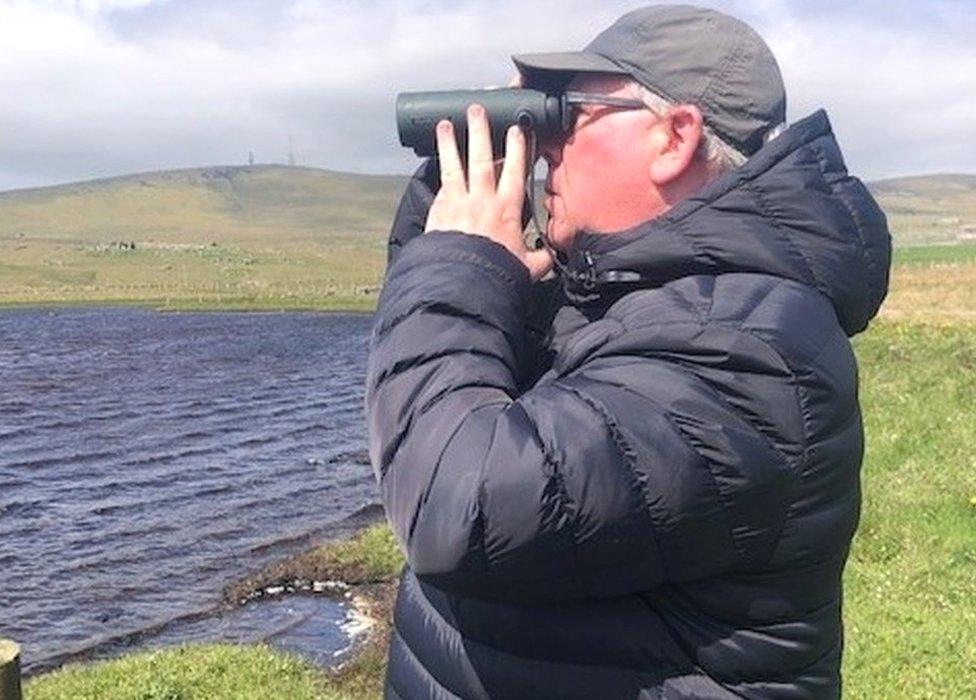
Hugh Harrop said the situation was of grave concern
Dr Glen Tyler, from nature agency NatureScot, has been collecting some of the dead birds and sending them off to be tested.
"We are getting reports from all over Shetland," he said.
'Super spreader event'
"At the moment, seabirds are suffering a very heavy hit."
Wildlife tour operator and photographer Hugh Harrop said it was a very alarming situation.
"Even inland the birds are dying," he said.
"We have over half of Scotland's gannets breeding in Shetland.
"A true seabird comes to land for one reason and that's to breed, the rest of their lives are out at sea.
"It's a grave concern that these birds coming back to the breeding colony where they are so tightly packed in is turning into a super spreader event."
Public health advice is that the risk to human health from the virus is very low.
Related topics
- Published1 June 2022
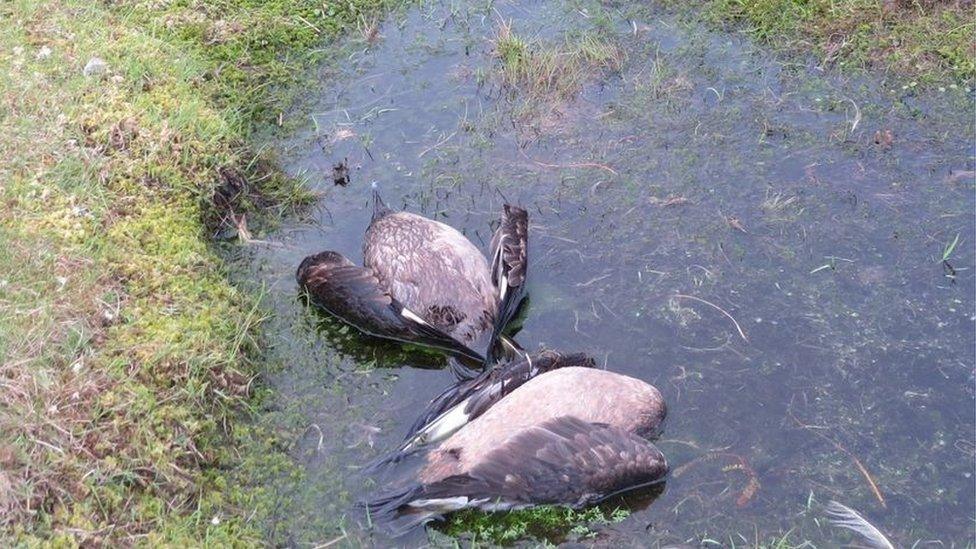
- Published13 May 2022
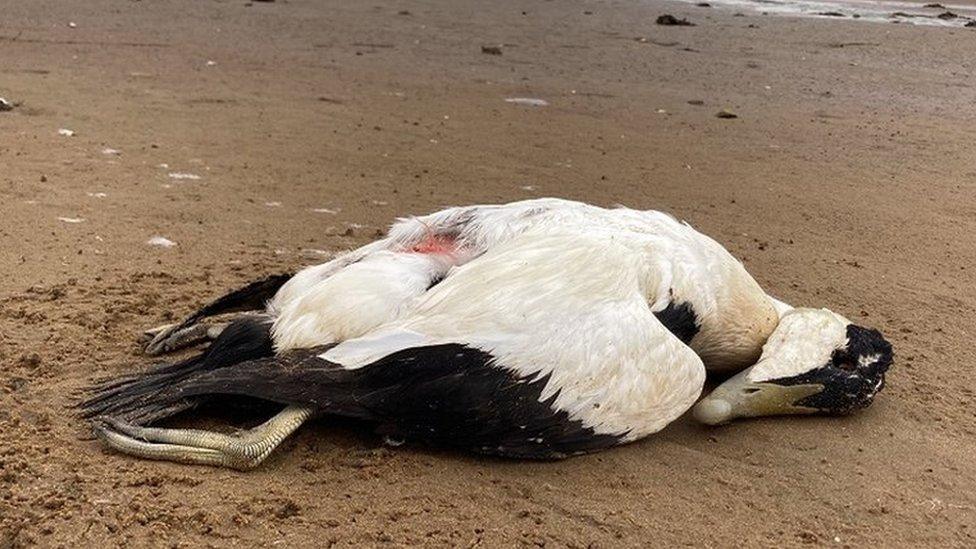
- Published29 March 2022
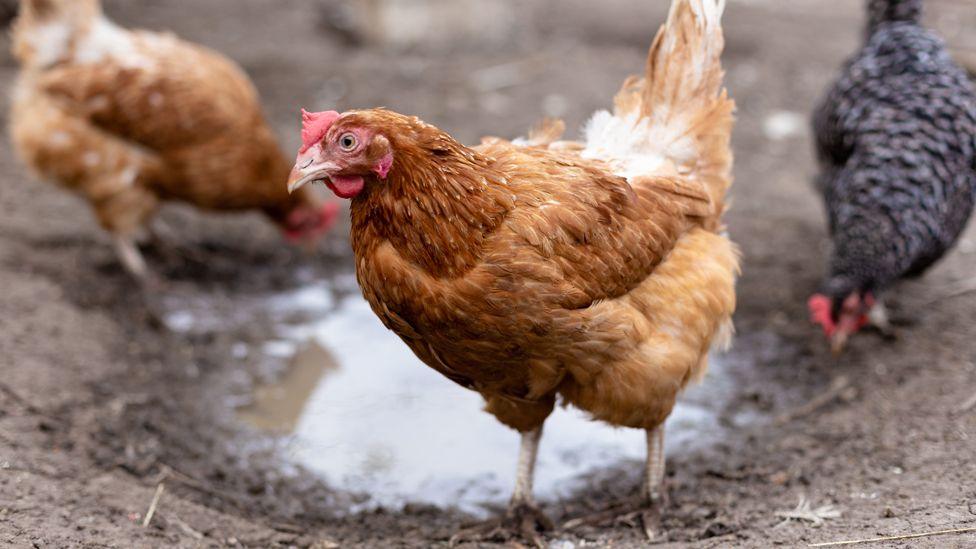
- Published20 March 2022
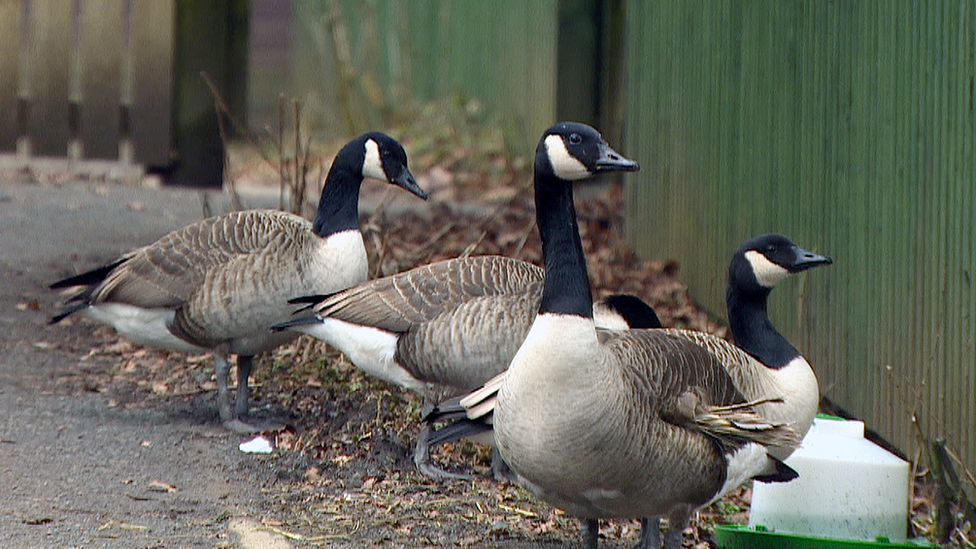
- Published11 March 2022
